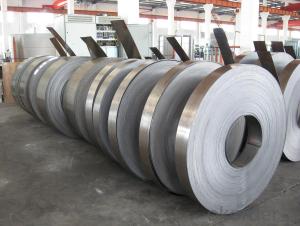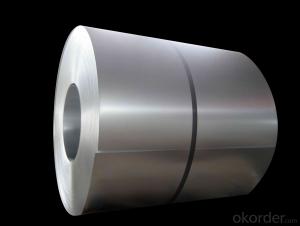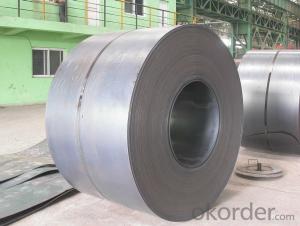GB 55SiCrA/DIN 54SiCr6 Spring Steel Flat
- Loading Port:
- Tianjin
- Payment Terms:
- TT OR LC
- Min Order Qty:
- 23 m.t.
- Supply Capability:
- 30000 m.t./month
OKorder Service Pledge
OKorder Financial Service
You Might Also Like
Specifications
,high strength and toughness
2,good hardenability and plasticity
3,excellent decarburization
55SiCrA/54SiCr6 spring steel
Quick Details:
Name: GB 55SiCrA/DIN 54SiCr6 Spring Steel Flat
Place of Origin:Liaoning,China Brand Name:Dongbei Tegang
Shape:Flat Material:Spring Steel
Steel Grade: GB 55SiCrA/DIN 54SiCr6
Size:Thick: 5mm~10mm;Width: 120mm~500mm
Application: used for making oblate springwhich can bear heavy load in rolling stock and tractor industry; coiled spring which its diameter is less than 30mm; heat resisting spring .
Chemical composition
| C | Si | Mn | P | S | Cr | Ni | Cu |
| 0.51~0.59 | 1.20~1.60 | 0.50~0.80 | ≤0.025 | ≤0.025 | 0.50~0.80 | ≤0.35 | ≤0.25 |
Packing&Delivery:
Packaging details: According to customer's require or export's standard
Delivery Time: In 30days after we receive 30% deposite
Port: Dalian
MOQ: 1TON
Standard:
| ASTM | USA | Ameirican Society of Mechanical Engineers |
| AISI | USA | Acronym of American Iron and Steel Institute |
| JIS | JP | Japanese Industrial Standards |
| DIN | GER | Deutsches Institut für Normung e.V. |
| UNS | USA | Unified Numbering System |
Product Advantages:
1,high strength and toughness
2,good hardenability and plasticity
3,excellent decarburization
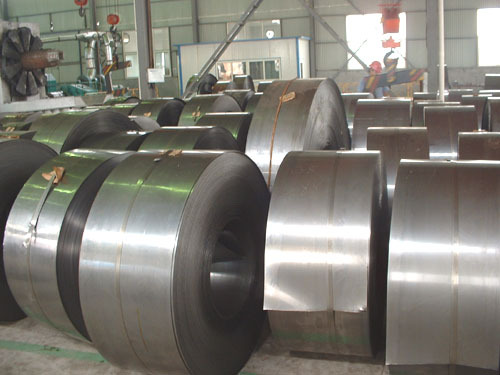
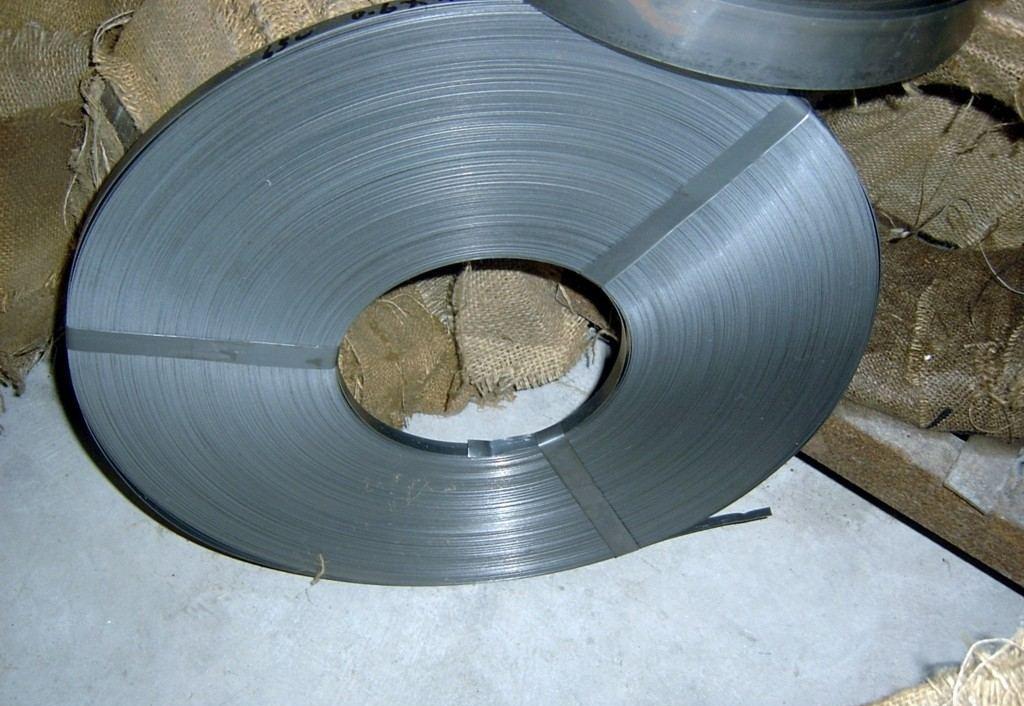
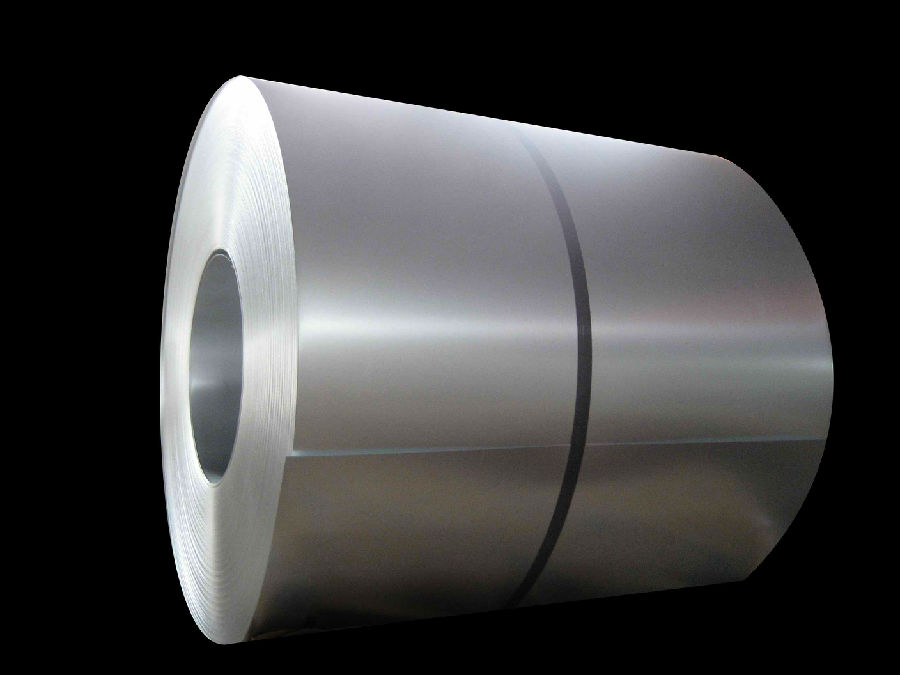
- Q:What are the main applications of special steel in the medical field?
- Special steel is widely used in the medical field for various applications. Some of the main applications include surgical instruments, implants, and medical devices. Surgical instruments such as forceps, scalpels, and scissors are often made from special steel due to its high strength, durability, and corrosion resistance. Implants, such as joint replacements and dental implants, are commonly made from special steel alloys that provide strength, biocompatibility, and resistance to wear and tear. Additionally, special steel is used in the production of medical devices like needles, catheters, and stents, where its properties contribute to their effectiveness and safety.
- Q:How does special steel contribute to the aerospace structural industry?
- The aerospace structural industry relies heavily on special steel due to its various important attributes needed for building aircraft components. Firstly, special steel possesses exceptional strength and durability, enabling it to withstand the extreme conditions and stresses experienced during flight. This is particularly crucial for critical components like landing gear, engine parts, and wing structures that face high temperatures, pressure, and vibrations. Additionally, special steel exhibits excellent corrosion resistance, which is essential for ensuring the long-lasting and reliable nature of aerospace structures. Aircraft are constantly exposed to harsh environments such as high humidity, saltwater, and chemicals, which can cause corrosion and degradation if not adequately protected. Special steel helps prevent these issues, ensuring the aircraft's structural integrity throughout its lifespan. Moreover, special steel offers other desirable properties including heat resistance, fatigue resistance, and weldability. These characteristics make it suitable for a wide range of aerospace applications such as constructing fuselage frames, engine mounts, fasteners, and hydraulic systems. By utilizing special steel in these components, aerospace manufacturers can achieve lightweight designs without compromising strength and safety. Furthermore, special steel empowers engineers to push the boundaries of aircraft performance by facilitating the development of advanced technologies. For example, the use of special steel alloys in turbine blades allows for higher operating temperatures, improving engine efficiency and reducing fuel consumption. This contributes to the overall sustainability and environmental friendliness of the aerospace industry. In conclusion, special steel is an indispensable material in the aerospace structural industry as it provides the necessary strength, durability, corrosion resistance, and other essential properties required for constructing aircraft components. Its contribution enables the development of safer, more efficient, and technologically advanced aircraft, ultimately benefiting the aerospace industry as a whole.
- Q:Can special steel be used in the semiconductor industry?
- Yes, special steel can be used in the semiconductor industry. Special steel alloys, such as stainless steel or high-temperature alloys, are often utilized for various components and equipment used in semiconductor manufacturing processes. These steels offer excellent corrosion resistance, high strength, and resistance to high temperatures, making them suitable for critical applications in the semiconductor industry.
- Q:Can special steel be used in renewable energy applications?
- Yes, special steel can indeed be used in renewable energy applications. Special steel refers to high-performance alloys that possess specific properties such as high strength, corrosion resistance, and temperature resistance. These properties make special steel an excellent choice for various components used in renewable energy technologies. In wind energy, for example, special steel is used in the manufacturing of wind turbine components such as rotor shafts, gears, and bearings. The high strength and fatigue resistance of special steel ensure the durability and reliability of these components, allowing them to withstand harsh environmental conditions and prolonged use. Special steel is also utilized in solar power systems. Solar panels require sturdy and corrosion-resistant frames to support and protect the delicate photovoltaic cells. Special steel provides the necessary strength and resistance to weathering, ensuring the longevity of solar panels in outdoor installations. Furthermore, in hydropower applications, special steel is employed in the construction of turbines, penstocks, and other components that are exposed to high-pressure and corrosive environments. The excellent resistance to erosion, cavitation, and corrosion of special steel ensures the efficient and reliable operation of hydropower plants. Additionally, special steel finds applications in the manufacturing of batteries used in renewable energy storage systems. The high strength and thermal stability of special steel are crucial for the containment and protection of battery cells, ensuring their safe operation. In summary, special steel is well-suited for renewable energy applications due to its exceptional mechanical properties and resistance to corrosion and high temperatures. Its utilization in wind turbines, solar panels, hydropower systems, and energy storage technologies enhances the performance and reliability of these renewable energy solutions.
- Q:How are aluminum alloys used in the automotive industry?
- Aluminum alloys are extensively used in the automotive industry due to their lightweight, high strength, and corrosion-resistant properties. These alloys are commonly utilized in the manufacturing of various components, such as engine blocks, cylinder heads, wheels, and body panels. By incorporating aluminum alloys, vehicles can achieve improved fuel efficiency, better performance, and enhanced safety while reducing overall weight and emissions.
- Q:How is wear-resistant stainless steel used in the production of cutting tools?
- Wear-resistant stainless steel is commonly used in the production of cutting tools due to its high hardness and resistance to wear and corrosion. This steel alloy is essential for making durable and long-lasting cutting tools, such as knives, blades, drills, and saws. The wear resistance of stainless steel ensures that these tools can withstand the friction and abrasion involved in cutting various materials, leading to improved performance and extended tool life.
- Q:Can special steel be used in the oil and gas equipment manufacturing industry?
- Yes, special steel can be used in the oil and gas equipment manufacturing industry. Special steel alloys, such as stainless steel and alloy steel, possess high corrosion resistance, strength, and durability, which are crucial properties for equipment used in the oil and gas sector. Special steel is commonly used in the manufacturing of pipelines, valves, drill bits, and other critical components due to its ability to withstand harsh operating conditions and maintain structural integrity.
- Q:What are the different machining techniques for special steel?
- There are several machining techniques specifically used for special steel, such as turning, milling, drilling, and grinding. Each technique involves different tools and processes to shape and cut the steel, depending on the required specifications and desired outcome. Additionally, other specialized techniques like electrical discharge machining (EDM) and laser cutting can also be utilized for special steel machining.
- Q:How does special steel contribute to the automotive aftermarket?
- The automotive aftermarket greatly benefits from the inclusion of special steel, as it aids in the advancement and enhancement of various automotive components. This top-notch steel is engineered specifically to possess remarkable strength, endurance, and resistance against wear and tear. One of the primary manners in which special steel contributes to the automotive aftermarket is through the production of performance parts. These parts are crafted to enhance the efficiency and performance of vehicles, catering to the desires and preferences of car enthusiasts. For instance, special steel is utilized in the production of exhaust systems, turbochargers, and intake manifolds, enabling an increase in horsepower and torque, as well as improved fuel efficiency. Furthermore, the production of suspension components, such as coil springs and sway bars, benefits from the usage of special steel. These components provide superior handling and stability, elevating the driving experience and ensuring the safety of both the vehicle and its occupants. Moreover, special steel is essential in the manufacturing of braking systems, encompassing rotors and brake calipers. These components are essential in achieving effective braking and maintaining control of the vehicle. By incorporating special steel, aftermarket brake systems can offer enhanced stopping power, reduced fade, and increased resistance to high temperatures. Additionally, special steel finds application in the production of engine components, including crankshafts, connecting rods, and valve springs. These components endure extreme forces and temperatures, and the exceptional strength and heat resistance of special steel enable them to withstand such conditions, resulting in improved engine performance and longevity. In conclusion, special steel significantly contributes to the automotive aftermarket by aiding in the development of high-performance parts, suspension components, braking systems, and engine components. Its outstanding strength, endurance, and resistance to wear and tear guarantee improved vehicle performance, efficiency, and overall driving experience.
- Q:How are titanium alloys used in the medical industry?
- Titanium alloys are widely used in the medical industry due to their excellent biocompatibility, corrosion resistance, and high strength-to-weight ratio. These alloys are used for various medical applications such as implants, surgical instruments, and medical equipment. They are often used in orthopedic implants, dental implants, and cardiovascular devices, as they provide long-term stability and compatibility with the human body. Additionally, titanium alloys are highly resistant to bodily fluids and can withstand harsh sterilization processes, making them ideal for use in the medical field.
1. Manufacturer Overview |
|
|---|---|
| Location | |
| Year Established | |
| Annual Output Value | |
| Main Markets | |
| Company Certifications | |
2. Manufacturer Certificates |
|
|---|---|
| a) Certification Name | |
| Range | |
| Reference | |
| Validity Period | |
3. Manufacturer Capability |
|
|---|---|
| a)Trade Capacity | |
| Nearest Port | |
| Export Percentage | |
| No.of Employees in Trade Department | |
| Language Spoken: | |
| b)Factory Information | |
| Factory Size: | |
| No. of Production Lines | |
| Contract Manufacturing | |
| Product Price Range | |
Send your message to us
GB 55SiCrA/DIN 54SiCr6 Spring Steel Flat
- Loading Port:
- Tianjin
- Payment Terms:
- TT OR LC
- Min Order Qty:
- 23 m.t.
- Supply Capability:
- 30000 m.t./month
OKorder Service Pledge
OKorder Financial Service
Similar products
New products
Hot products
Hot Searches
Related keywords
